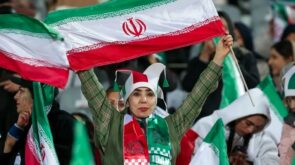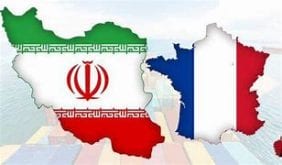Al-Arabia – Lebanon, which is crumbling as an Arab state and as a party with an Arab role, has become a place where the leaders of the security and military apparatus have turned into stars with the help of the security identity strengthened by Hezbollah. This identity has not been solidified in terms of confronting external dangers but in terms of confronting of the Lebanese model of diversity in its cultural and political context.
Water mismanagement
Recently, a Lebanese activist, who took the initiative of running laboratory tests to drinking water used by citizens in the southern suburbs of Beirut, found out the water is contaminated with human feces.
This incident takes place in a country that is said to be rich with water sources that distinguished it from its surroundings. However, this is no longer the case not because of scarcity in the sources of groundwater and surface water but because of the lack of supervision and the absence of the state that is under the control of a bunch of mafias that do not care about the needs of the people and their basic rights.
Sectarian slogans in the country have further marginalized citizens’ national identity and so the authorities have become capable of worsening their destructive behavior in matters of public administration since they’re reassured that citizens will not object to essential issues of maladministration as long as their sectarian community or their narrow identities are not harmed.
Therefore, Lebanese people are not suffering from water problem per se. It is essentially a crisis related to the responsibilities of the state and its institutions. This is also the case in the sector of electricity production and distribution. This sector is riddled with scandals of corruption and wastefulness and reflects the mentality which manages the public sector.
Electricité du Liban (Electricity of Lebanon – EDL) has had an annual deficit of over $1.5 billion, while the actual power production does not exceed twelve hours a day. In parallel with the official establishment, a private sector, which possesses thousands of power generators and that is protected by the authorities and earning high profits without paying any state tax, emerged.
Collapsing state machinery
These two examples, which reflect the extent of the state’s collapse, are directly linked to the transformation Lebanon is currently witnessing – a transformation which cannot be separated from the project that wants to undermine the Lebanese national character. This is what is happening in the name of Iranian control by imposing a situation that allows it to stay – a situation that makes this small country deprived of its national identity via strengthening sectarian and religious identities.
The methods of the President of the Republic and his Free Patriotic Movement are based on giving Hezbollah and Iran all they need in terms of a Lebanese cover in security and foreign policy, in exchange for liberating the hand of their movement and its Christian bloc to maximize internal gains.
This makes some sects, under the pretext of limiting the appetite of the FPM, to turn to Hezbollah in order to avert the hegemony of the President and his movement. This equation is what makes Hezbollah and the Iranian influence in the position of the governor and guardian of other sects. In fact, it allows Hezbollah to be relieved of the burden of accusations that it is the party responsible for weakening the state and it throws back such allegations on other forces instead.
Iran’s failing mission
What contributes to solidifying the conflict among local powers is the absence of any Arab or international efforts to avert it and the absence of any attempt to limit turning Lebanon into becoming an Iranian base for carrying out security and military missions in more than one Arab area.
As long as Iran is committed to not compromising Israeli security, there is no international objection against Hezbollah’s control of Lebanon. In fact, no one is opposing the numerous Iranian proxies in more than one Arab country and there is no objection apparently against toppling the project of the state in Lebanon by turning it into a theater of doctrinal and sectarian groups fighting against each other within the red lines drawn by Iranian influence and which Iran seeks to generalize in more than one Arab country.
The Lebanese press which is withering away along with the project of the state has receded into media platforms that aim to protect the dominant equation. Shutting down of newspapers and the threats against journalists aim to state that the press and the media must be in the service of this current equation. In Lebanon, there is no longer any media space that is independent of this ruling equation. Although some media outlets seem like they are trying to oppose the red lines set by Hezbollah, the judiciary and other security apparatuses go ahead and restrain them or besiege them.
The fact remains that the project that Iran preaches in Lebanon and the region does not seem sustainable. It is causing national and public anguish and major losses. It is not providing any reassurance for what appears to be special or sectarian gains. All the indications are pointing to further social and economic collapse without leading to any positivity or hope in the future.
This does not mean that the absence of hope or a dream is what may deter Iran’s continuing influence and domination of Lebanon. The inability to form a government today is a sign that Iran needs to show that the problem in Lebanon is in the state and the society, knowing fully well that Hezbollah, with all its leverage, can form a government within hours, because of its ability to pressure all parties and adversaries, not to mention its allies.
Hezbollah’s sway
Hezbollah succeeded in threatening and preventing a meeting between Lebanese officials and which was called for by the Lady of the Mountain gathering a Beirut hotel under the headline of confronting Iranian occupation of Lebanon. It’s worth noting that in Lebanon, not even at the peak of the civil war, no one had the power whatsoever to prevent a political or cultural activity from happening no matter what the subject of discussion was. Today, however, in Lebanon one can carry out any activity against any country and for any cause, but it is prohibited to carry out any activity against Iranian policy or against illegal weapons.
Lebanon, which has been a fortress against Israeli occupation and which has rebelled against the tutelage of the Syrian regime is entering a new stage which is not less dangerous than the Syrian hegemony and the Israeli occupation, albeit it is more complex. The reality of the situation is that Lebanon is losing the vital organs of its life, and now can only defend its right to exist.
The most dangerous thing Lebanon is facing amid the Iranian hegemony is generalizing fragility in everything at the level of the state, national belonging and freedom.
It is my estimation that Lebanon will not give up no matter how fierce and strong this new tutelage, which only brings ruin and decay, is, and while tutelage destroys, it’s the Lebanese people’s destiny to build.
This article is also available in Arabic.
Ali Al-Amin is a journalist based in Lebanon and is the Editor of news site Janoubia.com.
 Shabtabnews In this dark night, I have lost my way – Arise from a corner, oh you the star of guidance.
Shabtabnews In this dark night, I have lost my way – Arise from a corner, oh you the star of guidance.


